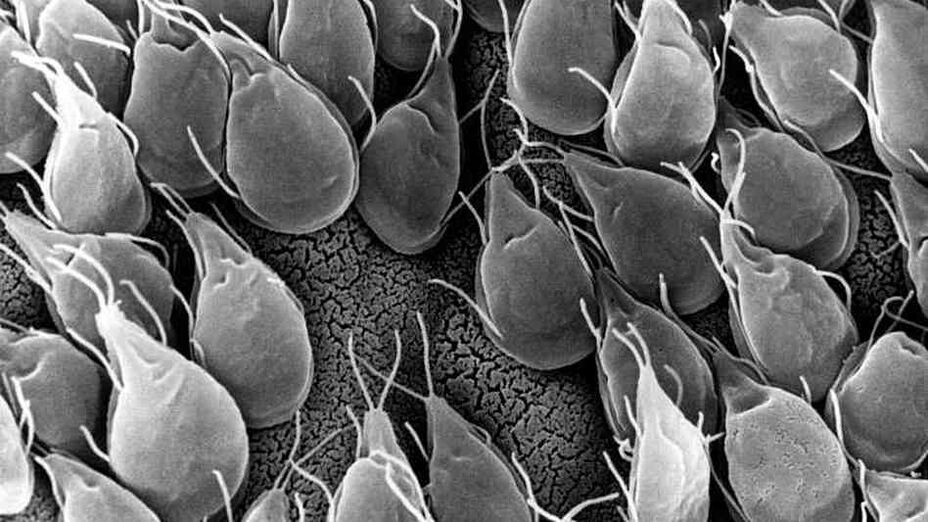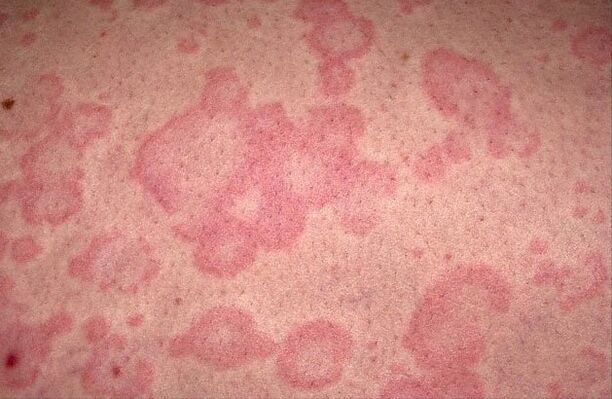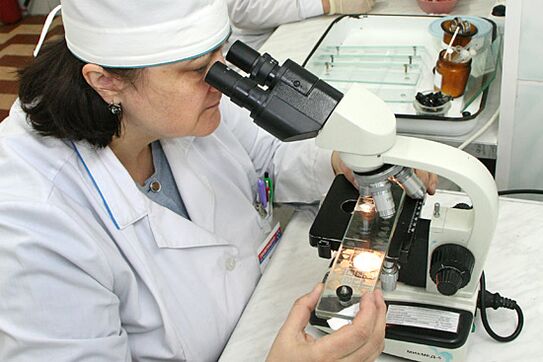Parasites release a large amount of toxins throughout their lives. These substances are the strongest allergens. When parasites appear in the body, a person develops itching, hives, and a rash.
It is believed that the waste products of various parasites are the strongest allergens. If the patient is allergic to dust, wormwood and pets, then the risk of anaphylactic shock is high.
When allergic reactions occur, a person should undergo complex drug treatment. It is made using a new generation of antihistamines. Also, drug therapy is supplemented with immunomodulatory, anthelmintic and multivitamin preparations.
What types of parasites cause allergies

Allergies and parasites are closely related. Giardia is the most common cause of allergic reactions in humans. These worms belong to the class of protozoa. Giardia enters the body along with poorly processed food.
Another person can become infected if they have been in contact with carriers of the parasite. The most common carriers of Giardia are insects and cockroaches. In addition, a person can become infected with Lyabmlia when eating raw fish.
Different types of helminths can also cause allergies. These include roundworms, whipworms, toxocars, opisthorchis and echinococci. These parasites enter the body when a person eats poorly processed meat or fish. Also, the cause of helminth invasion can be non-compliance with hygiene rules and the use of raw chicken eggs.
Doctors say that if you have an allergy, the parasites have already started to multiply. Immediately after the invasion, allergy symptoms may not appear. The severity of the clinical manifestations depends on the localization of the parasites. For example, the intensity of allergic reactions increases when parasites have settled in the intestines, bronchi or pancreas.
Parasites that cause allergies lead to a decrease in immunity. This is because the products of their vital activity travel throughout the body along with the blood. Parasites often cause secondary infections and autoimmune diseases.
It has been found that when parasites appear in the gastrointestinal tract, the production of certain enzymes is inhibited.
As a result, a person develops immunodeficiency. In this case, allergic reactions can even be accompanied by hair loss.
How does an allergy manifest itself in parasitosis?
What are the symptoms of a worm infestation? A worm allergy can manifest itself in different ways. It all depends on the type of worm and the individual characteristics of the person.
Doctors say that an allergy to parasites manifests itself in the same way as an allergy to wormwood, pets or medicines. The first signs of an allergic reaction:
- Eczema.
- Itching. It can be paroxysmal in nature, that is, disappear from time to time.
- exfoliation of the skin. Usually the skin on the face or extremities is peeled.
- swelling. This symptom develops when a person has a predisposition to developing allergic reactions.

With untimely relief from allergies, the patient develops bronchospasm. It poses a serious threat to life. If you do not provide emergency assistance to a person, they may suffocate.
Eczema, itching, and other signs of an allergic reaction can go away over time. In addition to these symptoms, a person has a sharp decrease in body weight. Some types of helminths, for example Giardia, on the other hand, lead to obesity.
Even with the appearance of allergic reactions, a person has an unpleasant odor from the mouth. It indicates that the parasites led to the development of pathologies of the digestive tract. It is very likely that the pH in the stomach has changed. If you do not take emergency measures, the patient may develop chronic gastritis or diabetes mellitus.
If the patient does not tolerate wormwood and other allergens, then with helminthic invasions, the intensity of clinical manifestations increases significantly. In this case, a severe allergic reaction develops, which is accompanied by such symptoms as:
- Chills. It is accompanied by general malaise. The patient usually feels drowsy and weak.
- increase in body temperature. With the development of severe allergic reactions, the body temperature rises to 40 degrees.
- intoxicationIt manifests itself as dyspeptic phenomena. The patient usually experiences vomiting, diarrhea, or nausea. These symptoms are accompanied by paroxysmal pains of a cutting nature in the abdomen.
- Red rash. It covers the entire surface of the skin.
If you do not stop a strong allergic reaction, the patient will develop an asthma attack. There is also a high possibility of developing various side effects. It was found that with helminthic invasions, the risk of progression of chronic allergies is significantly increased.
In addition, there is a possibility of developing autoimmune and neurological diseases.
Diagnosis and treatment of allergies

If symptoms of helminth invasion appear, it is recommended to undergo a comprehensive examination. First, you should pass a stool test. If a parasite is detected in the faeces, the doctor immediately selects the appropriate medication.
Sometimes the larvae are not found in the feces. In this case, the patient needs to take a general blood test. With its help, it is easier to diagnose the disease. If a person has parasites in the body, then as a result of the tests, an increased number of eosinophils and accelerated ESR are detected. If necessary, diagnostic measures are supplemented by ultrasound and X-ray examinations.
After that, the doctor needs to familiarize himself with the patient's medical history and choose the appropriate drugs. Initially, symptomatic treatment is carried out. It is needed to stop allergic reactions. To get rid of allergies, you can use antihistamines.
The duration of taking such funds is from 1 to 14 days. If necessary, the course of treatment is repeated.
After removing the parasites from the body, a person is prescribed immunomodulatory drugs and multivitamin complexes. They are needed to minimize the risk of the disease recurring and to strengthen the immune system.



















